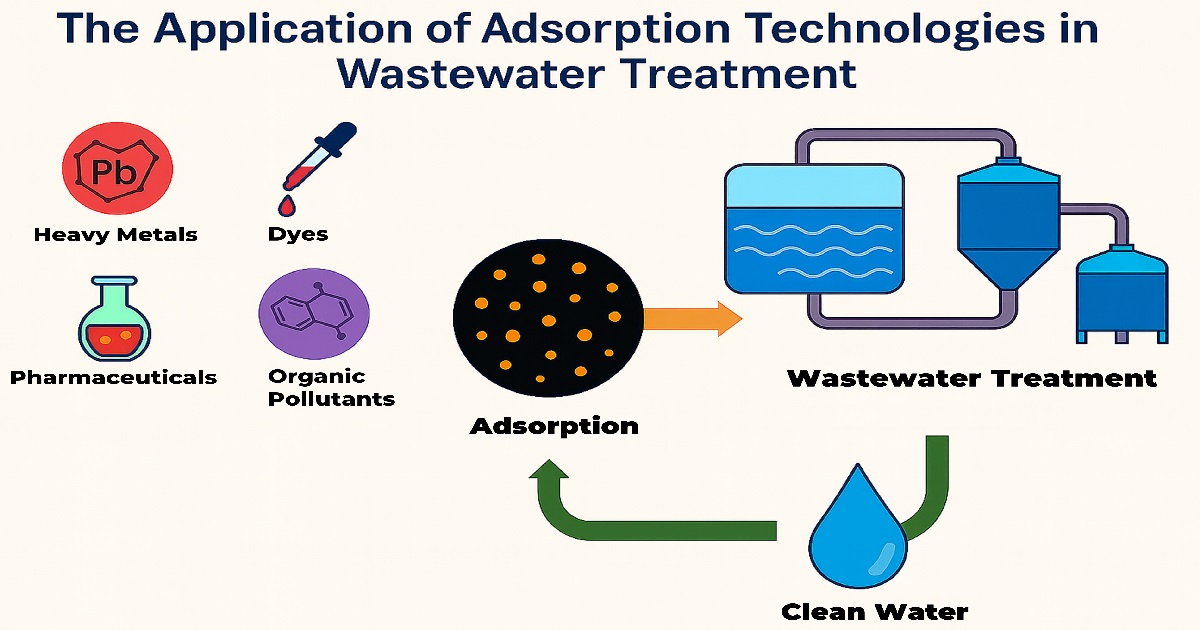- 3.0Impact Factor
- 6.0CiteScore
- 19 daysTime to First Decision
The Application of Adsorption Technologies in Wastewater Treatment
This special issue belongs to the section “Wastewater Treatment and Reuse“.
Special Issue Information
Dear Colleagues,
Adsorption is one of the most widely used and effective techniques for removing pollutants from wastewater due to its simplicity, cost-efficiency, and adaptability to a wide range of contaminants. With growing environmental concerns and stricter discharge regulations, research into advanced adsorbents and optimised adsorption systems has gained increasing momentum. This Special Issue aims to highlight recent progress and innovation in adsorption-based technologies for wastewater treatment, from laboratory-scale studies to real-world applications.
We welcome original research articles, critical reviews, and short communications on the development, characterisation, and performance of adsorbent materials, as well as their regeneration, modelling, and integration with other treatment processes. Topics may include novel adsorbent materials (e.g., nanomaterials, modified biochars, composites), kinetic and isotherm modelling, regeneration techniques, process optimisation, integration with other treatment methods, and the life cycle assessment (LCA) of adsorption-based systems. This Special Issue aims to present a balanced view, from fundamental research to practical implementation, encouraging sustainable development and technological innovation.
Topics of interest include (but are not limited to) the following:
- Removal of heavy metals, dyes, pharmaceuticals, and organic pollutants;
- Development of low-cost and eco-friendly adsorbents;
- Advanced characterisation and performance analysis;
- Fixed-bed/column adsorption and pilot-scale studies;
- Regeneration and reuse of adsorbents;
- Coupling adsorption with biological or physicochemical treatments;
- Life cycle assessment (LCA) and environmental impact analysis.
Dr. Martin J. Taylor
Guest Editor
Dr. Amthal Al-Gailani
Guest Editor Assisstant
Manuscript Submission Information
Manuscripts should be submitted online at www.mdpi.com by registering and logging in to this website. Once you are registered, click here to go to the submission form. Manuscripts can be submitted until the deadline. All submissions that pass pre-check are peer-reviewed. Accepted papers will be published continuously in the journal (as soon as accepted) and will be listed together on the special issue website. Research articles, review articles as well as short communications are invited. For planned papers, a title and short abstract (about 250 words) can be sent to the Editorial Office for assessment.
Submitted manuscripts should not have been published previously, nor be under consideration for publication elsewhere (except conference proceedings papers). All manuscripts are thoroughly refereed through a single-blind peer-review process. A guide for authors and other relevant information for submission of manuscripts is available on the Instructions for Authors page. Water is an international peer-reviewed open access semimonthly journal published by MDPI.
Please visit the Instructions for Authors page before submitting a manuscript. The Article Processing Charge (APC) for publication in this open access journal is 2600 CHF (Swiss Francs). Submitted papers should be well formatted and use good English. Authors may use MDPI's English editing service prior to publication or during author revisions.
Keywords
- adsorption
- wastewater treatment
- heavy metal removal
- organic pollutant adsorption
- low-cost adsorbents
- fixed-bed systems
- regeneration
- adsorption modelling
- life cycle assessment (LCA)
- environmental sustainability

Benefits of Publishing in a Special Issue
- Ease of navigation: Grouping papers by topic helps scholars navigate broad scope journals more efficiently.
- Greater discoverability: Special Issues support the reach and impact of scientific research. Articles in Special Issues are more discoverable and cited more frequently.
- Expansion of research network: Special Issues facilitate connections among authors, fostering scientific collaborations.
- External promotion: Articles in Special Issues are often promoted through the journal's social media, increasing their visibility.
- e-Book format: Special Issues with more than 10 articles can be published as dedicated e-books, ensuring wide and rapid dissemination.

